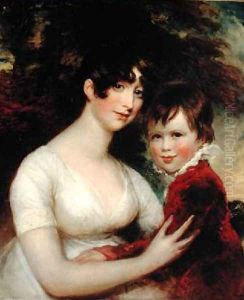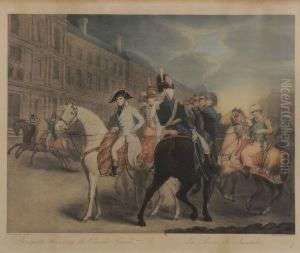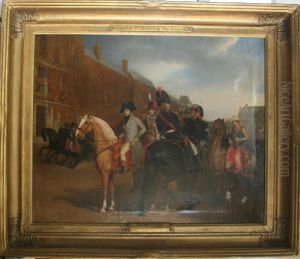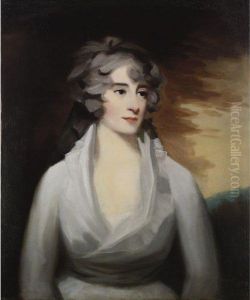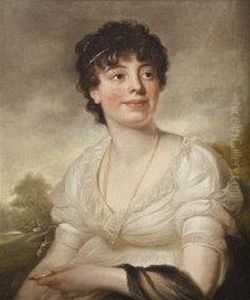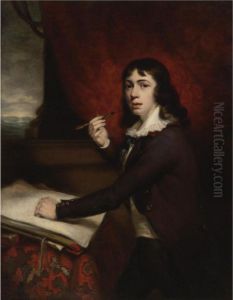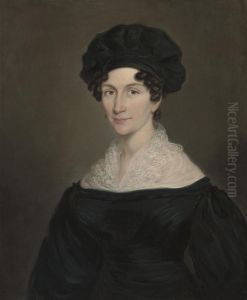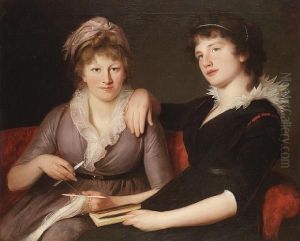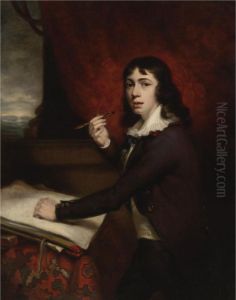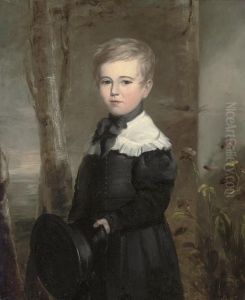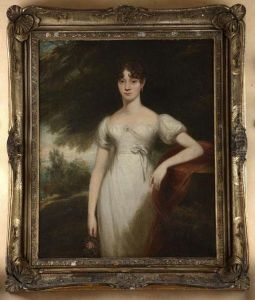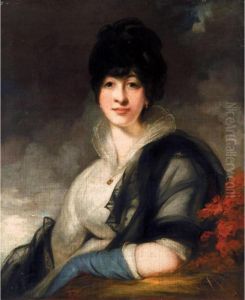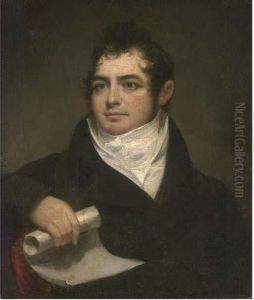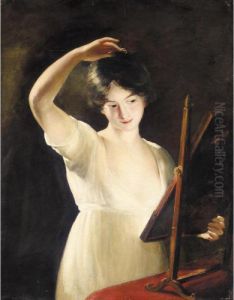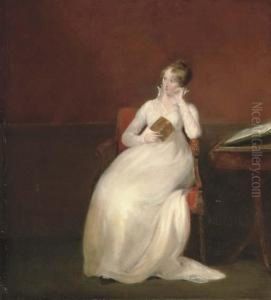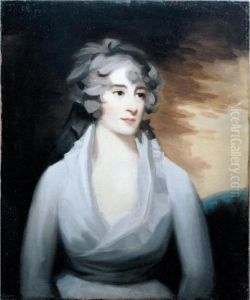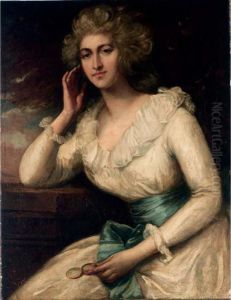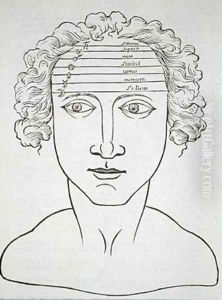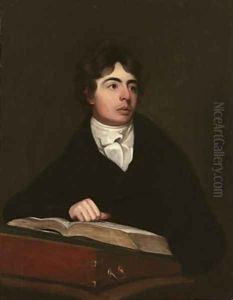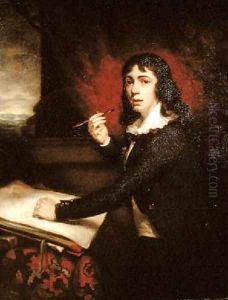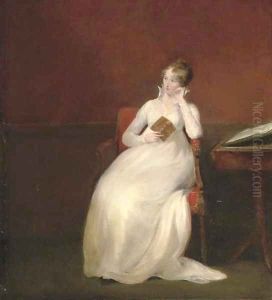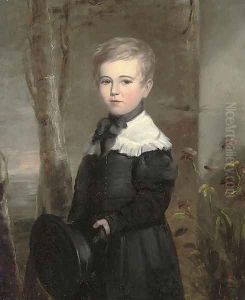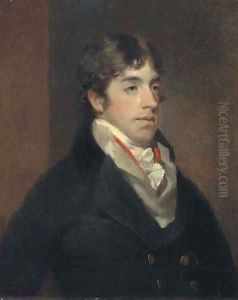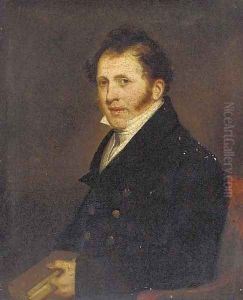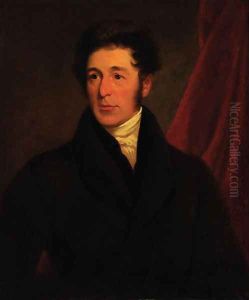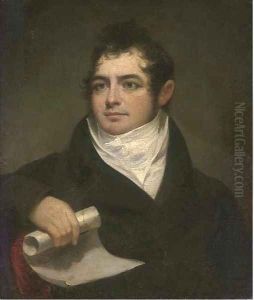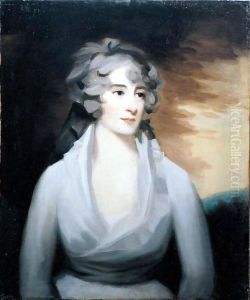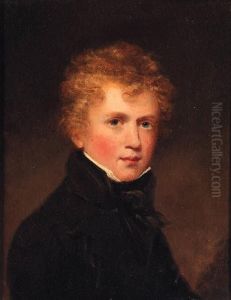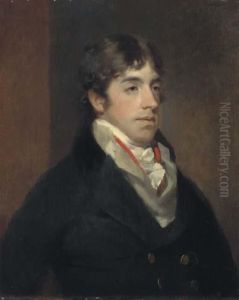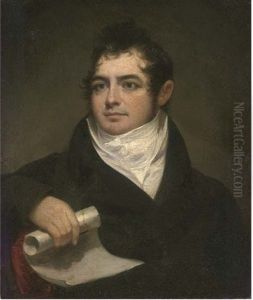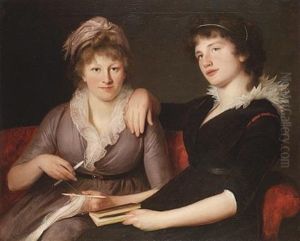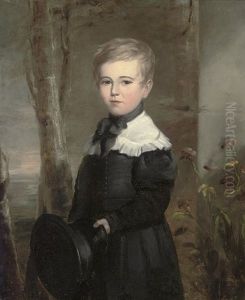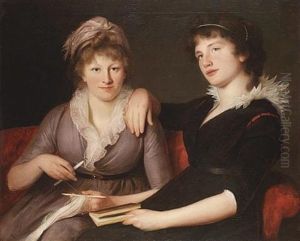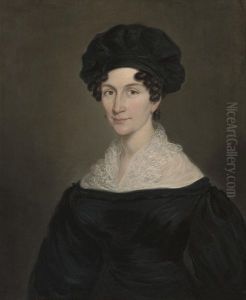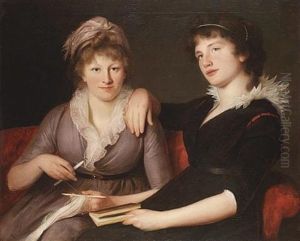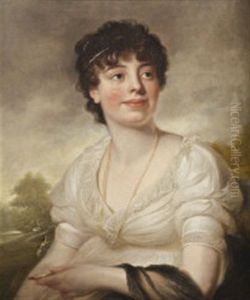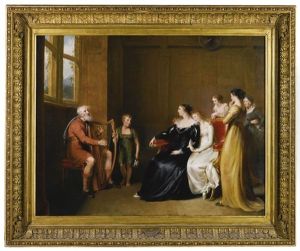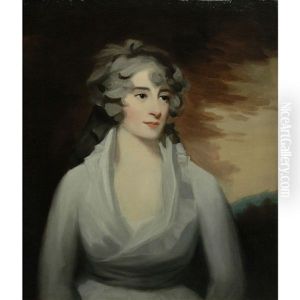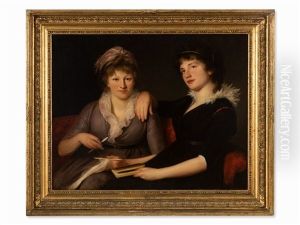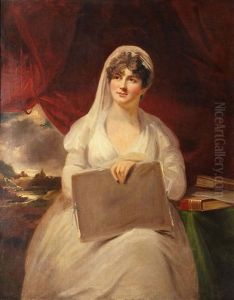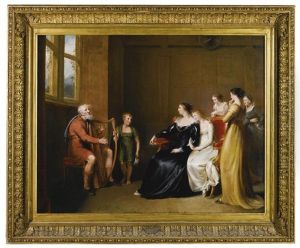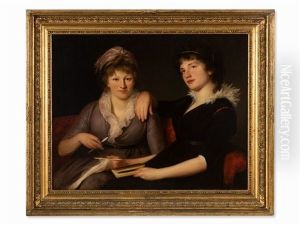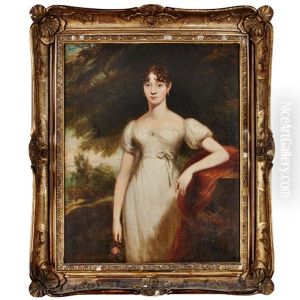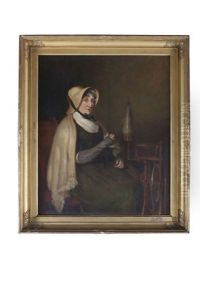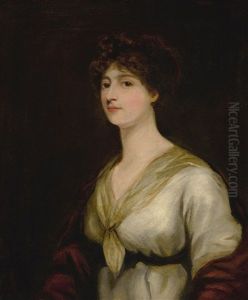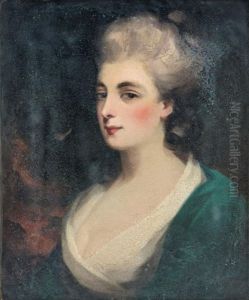John James Masquerier Paintings
John James Masquerier was an English portrait painter born in 1778 in London to French Huguenot parents. He exhibited a natural talent for art in his youth, which led him to study at the Royal Academy Schools. Masquerier gained recognition early in his career when he won a silver medal for drawing in 1792. His rise as a portraitist was influenced by the fashion for small full-length portraits, which he mastered with a unique style and finesse.
Masquerier's career was not limited to England; he also spent some time in Paris, where he sketched prominent figures of the day such as Napoleon Bonaparte and Joséphine de Beauharnais. His time in Paris was cut short by the outbreak of the Napoleonic Wars, which forced him to return to England. Back in London, Masquerier quickly reestablished himself as a sought-after portraitist for the British gentry and aristocracy.
Throughout his life, Masquerier enjoyed the patronage of many notable figures, including members of the British Royal Family. He was known for his ability to capture the character and elegance of his subjects, which kept him in high demand. Despite his success as a portrait painter, Masquerier also ventured into other genres, including historical painting, although these works did not garner the same level of acclaim as his portraits.
Masquerier was an active member of the artistic community and was friends with many of the leading artists and literary figures of his time. He was known for his lively personality and for hosting gatherings that brought together the creative minds of the period.
As he aged, Masquerier's health began to decline, which affected his ability to paint. He died in 1855, leaving behind a legacy as a prominent portraitist of the Regency and early Victorian eras. His works can be found in various art collections and have been displayed in exhibitions highlighting the period's art. Masquerier's contribution to English portraiture is remembered for its elegance, refinement, and the insight it provides into the society of his time.
